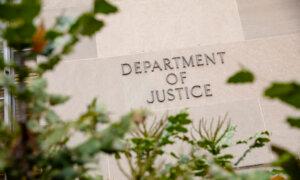The bill now set for swift passage in the Senate does not require intelligence officials have a warrant to search Americans’ data and communications.
The U.S. Senate on April 18 overcame a key procedural hurdle to reauthorize a controversial spying authority.
The authority in question, Section 702 of the Foreign Intelligence Surveillance Act (FISA), easily overcame the filibuster threshold of 60 votes. In an 67–32 vote, the Senate voted to limit debate on the issue, clearing the way for it to come for a final vote on the Senate floor by Section 702’s expiration date of April 19.
Section 702 authorizes intelligence agencies to conduct warrantless surveillance of foreigners, but it also captures information on Americans with whom the foreign target communicates. This has drawn civil liberty concerns from both sides of the aisle, especially after revelations of expansive misuse by the FBI.
Notably, the bill now set for debate in the Senate does not include a requirement that intelligence officials get a warrant to search the data and communications of American citizens caught up in FISA’s vast surveillance framework.
The House voted down an amendment by Rep. Andy Biggs (R-Ariz.) that would have mandated such a requirement in a tied 212–212 vote.
The bill passed by the House is a modified version of Rep. Laurel Lee’s (R-Fla.) Reforming Intelligence and Securing America Act that would extend the controversial spying authority for two years, a cut from an earlier draft that would have reauthorized the program for five years.
The issue has divided national security hawks and privacy advocates in Congress.
Sen. Rand Paul (R-Ky.) has been a fierce proponent of adding a warrant requirement.
He’s also indicated that he’s willing to obstruct passage of the legislation.
Sen. Lindsey Graham (R-S.C.), meanwhile, told reporters ahead of the April 18 that he disagrees with Mr. Paul, saying, “It would be a disaster to shutdown our 702 capabilities.”
Abuses and Reforms
The bill would also make moderate reforms to the process of using Section 702.
The issue has deeply divided Congress due to a series of abuses of the program that have come to light in recent years.
In response to these and other reported abuses, Ms. Lee’s bill would make some changes to how information is collected and the safeguards around such actions.
It would primarily strengthen requirements to “ensure that applications to the Foreign Intelligence Surveillance Court … that target United States persons are accurate and complete.”
Other provisions would dramatically cut the numbers of those allowed to perform and authorize FISA queries, which proponents say would help ensure that the law is followed.
Another provision would mandate a flat prohibition on using Section 702 to collect evidence of a crime.
These reforms “will make clear this is an intelligence tool, not a law enforcement tool,” House Intelligence Committee Ranking Member Jim Himes (D-Conn.), a supporter, said during an earlier Rules Committee hearing.
It also strengthens penalties for illegal queries, imposing a fine or up to 10 years in federal prison for violations.
The program has many critics in the Senate, most notably Sens. Rand Paul (R-Ky.), Dick Durbin (D-Ill.), and Ron Wyden (D-Ore.).
However, now that the Senate has given the green light to limit debate on the legislation, senators critical of the program will have few tools available to obstruct or slow passage of the legislation through the upper chamber.
With the procedural hurdle cleared, the bill is all but guaranteed to make it through the Senate to President Joe Biden’s desk.
The White House has called the reauthorization of Section 702 without a warrant requirement “critical,” and is widely expected to approve the legislation.
Original News Source Link – Epoch Times
Running For Office? Conservative Campaign Consulting – Election Day Strategies!


